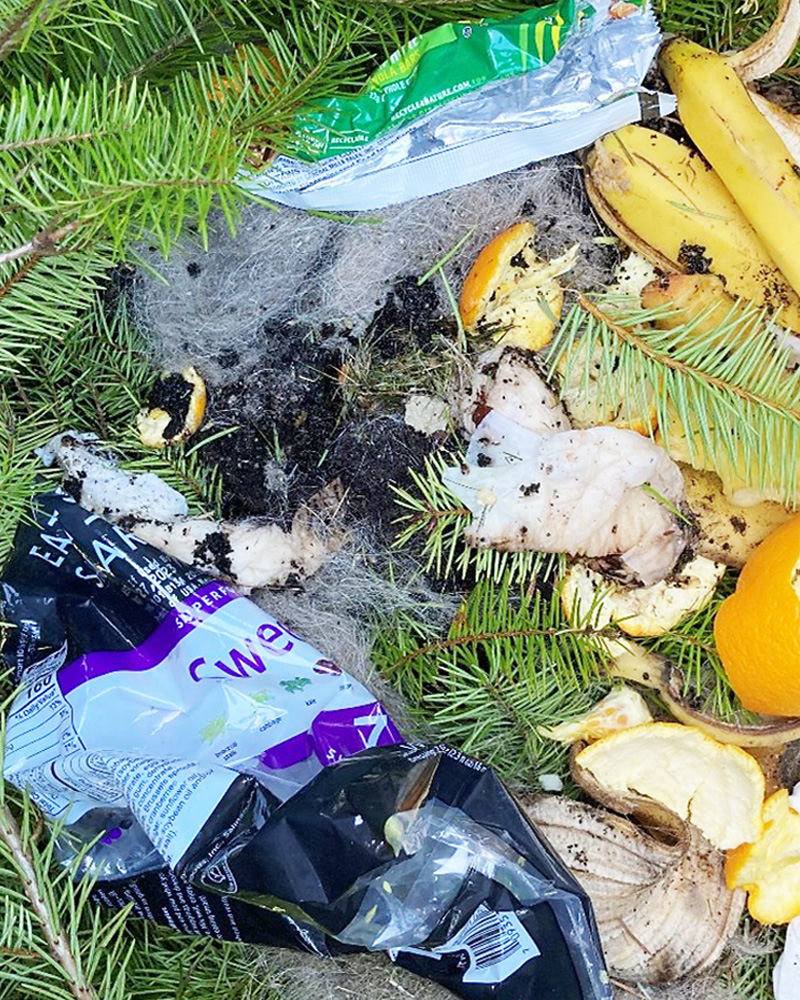
Plastic packaging and wrappers are contaminants in compost and can render valuable organic waste useless.
Composting is a great way to turn yard debris and food scraps into a valuable soil amendment that enriches soil. Remember to keep the compost "clean" by not including contaminants like plastic packaging and wrappers. Recycle your plastics or place them in a garbage container.
Just like other recycling systems, depositing plastics in your organics collection bin can contaminate a truckload of material. This causes nutrients that could have enriched the soil to be lost.
No one wants plastic-filled compost
Many types of materials can contaminate compost. Plastic, glass, and metal clog and break composting facility machinery. These contaminants also make it hard for facilities to sell the finished compost.
“Any material that doesn’t belong in a compost pile is not good, but plastic is very problematic,” said Michelle Andrews, Organics Specialist at Ecology. "Plastics, like single-use plastic bags, food packaging, and produce stickers cause major headaches when they’re mixed in material received by compost facilities."
Compost facilities remove contaminants by hand and mechanically, but disintegrating plastic can only be partially removed because the plastic particles are very small. In some cases, the plastic breaks down so small that it’s impossible to completely screen out. Some facilities receive so much contaminated organics they have to triple-screen finished compost, losing out on valuable small pieces of woody yard debris that are screened out with the non-compostable items. Fruit and veggie stickers are one of the worst culprits because they easily slip through screeners.
These facilities are also burdened with the costs of purchasing and maintaining expensive machinery, disposal of contaminants, and dedicating staff to the contamination removal process. It’s much easier for individuals to prevent contaminants from ever reaching their organics bin.
Contaminated compost impacts everyone who has to work with it — haulers, residential gardeners, farmers, landscapers, public works, and more. Some compost facilities may avoid contaminating their product by not accepting food waste, which is a big source of intermixed plastic packaging debris.
“Compost is an amazing material that benefits soil by providing nutrients, microbes, and improved soil structure,” said Andrews. “Plastic contamination gives compost a bad name and can turn people away from buying and using it. It doesn’t have to be that way.”
Help keep Washington’s compost stream contamination-free! Check with your local hauler for details about the materials they accept and don't accept. Recycle your plastics or toss them in your garbage can. Keep these contaminants out of your yard debris and food scrap bins.

